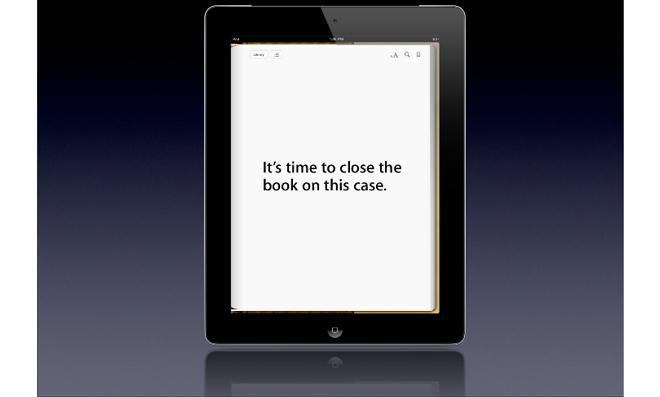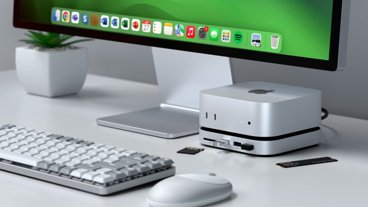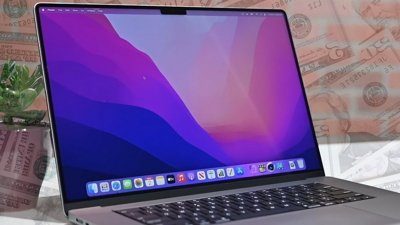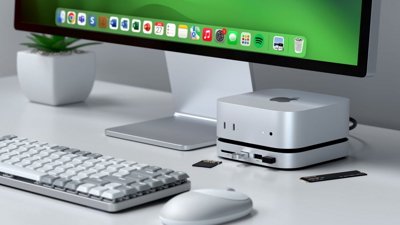Apple's efforts to have antitrust compliance monitor Michael Bromwich removed from oversight of its business were denied on Wednesday, as an appeals court said the iBooks operator lacked sufficient reasoning to have him replaced.
In the decision, the 2nd U.S. Circuit Court of Appeals in New York admitted that some of the actions made by Bromwich "give pause." But that wasn't enough to have him entirely removed from his oversight position, as noted by Reuters.
Bromwich was assigned to keep tabs Apple's operations following an antitrust lawsuit won against the company by the U.S. government. And while Apple and Bromwich have not seen eye to eye from the start, in recent months the relationship has worsened.
In a statement made to Judge Denise Cote last month, Bromwich said Apple has taken a more "adversarial tone" in recent discussions. In addition, he said that no interviews have been conducted since January, since Apple has rejected his requests.
Apple has taken issue with the extent of the investigations by Bromwich, alleging that his reviews have gone beyond the original intent by the court. Some outside of the company have agreed, including a circuit court judge and the editorial board of The Wall Street Journal.
In its decision on Wednesday, the 2nd U.S. Circuit Court of Appeals apparently agreed with some of those criticisms of Bromwich, but did not feel there was enough to have a new antitrust compliance monitor appointed. As a result, Bromwich's oversight of Apple will remain.
In February, the Journal's opinion page slammed Bromwich's approach as being "major abuse, even by the standards of modern antitrust." The newspaper even alleged that Apple should sue Bromwich for his investigation, which has cost the company more than $2.65 million and has involved investigations into Apple's Siri, Maps and hardware engineering groups, none of which are related to the e-book antitrust lawsuit.
The U.S. government's ruling saddled Apple with an injunction that bars it from entering into any unsavory deals with publishers, and as antitrust monitor, Bromwich's job is to ensure that Apple follows those restrictions. Apple officials have said they continue to fight the case out of principle, because the company insists that no illegal collusion took place between itself and book publishers.
For the launch of the iBookstore, Apple and book publishers opted to switch to a so-called "agency" pricing model, that allowed publishers to control the prices of books and prevented resellers like Amazon from undercutting those rates. The subsequent increase in e-book prices led the government to take action.
Since then, the agency has switched back to the "wholesale model" preferred by Amazon, which allows resellers to set prices, and sell titles at or below costs if they so choose.
 Neil Hughes
Neil Hughes















 Sponsored Content
Sponsored Content
 Wesley Hilliard
Wesley Hilliard
 AppleInsider Staff
AppleInsider Staff
 Andrew Orr
Andrew Orr
 Amber Neely
Amber Neely

 William Gallagher
William Gallagher









22 Comments
This whole thing is nonsense IMO.
I still think this whole lawsuit is utter bullshit. I can't see how it was collusion and how bringing another strong competitor into a monopolistic market (Amazon) is a bad thing for the market. Intellectual property needs to be valued and Amazon was whoring it out to gain market share.
If I was Apple, I'd completly keep this guy in the dark about anything and everything not having to do with e-books!!! That's all he's there for, give him the finger when he wants access to anything else!!!
Is this the same appeals court that is ruling on Apple's appeal of the actual verdict? If so what on earth is taking them so long. If they rule in favor of Apple on the appeal then any issue related to Bromwich is moot. Does this indicate a negative ruling on the appeal is forthcoming? Sure hope not.
Why does anyone think the court system will rule against itself? They're just like FIFA and will do whatever it takes to keep their good old boys and girls club running. What we really need is a congressional and presidential investigation into the entire judicial system. This is the only way to get the third branch of the government to actually play by the rules.
Of course, we all know this will never happen because the entire government is incapable of doing anything resembling consistent operation.